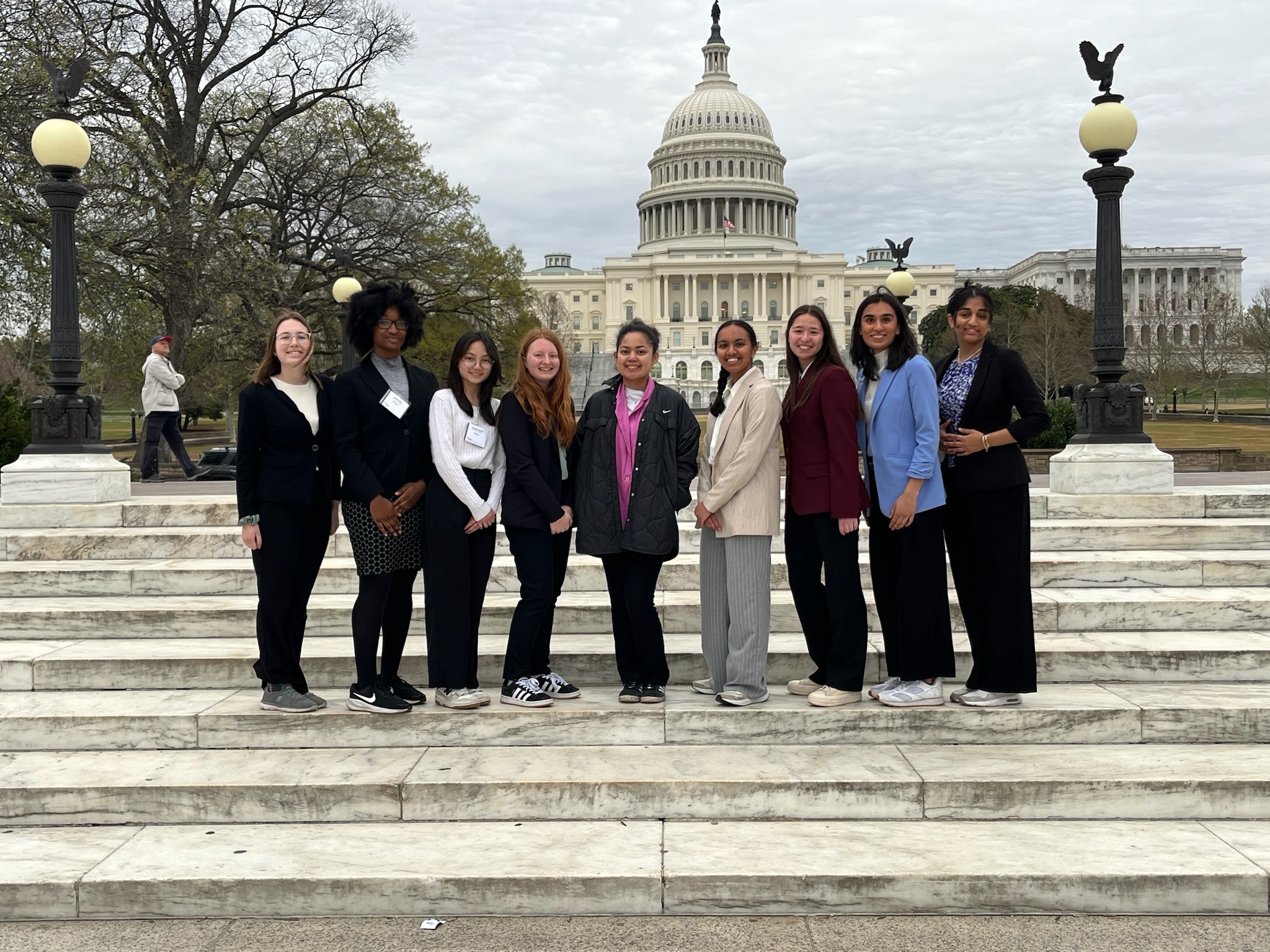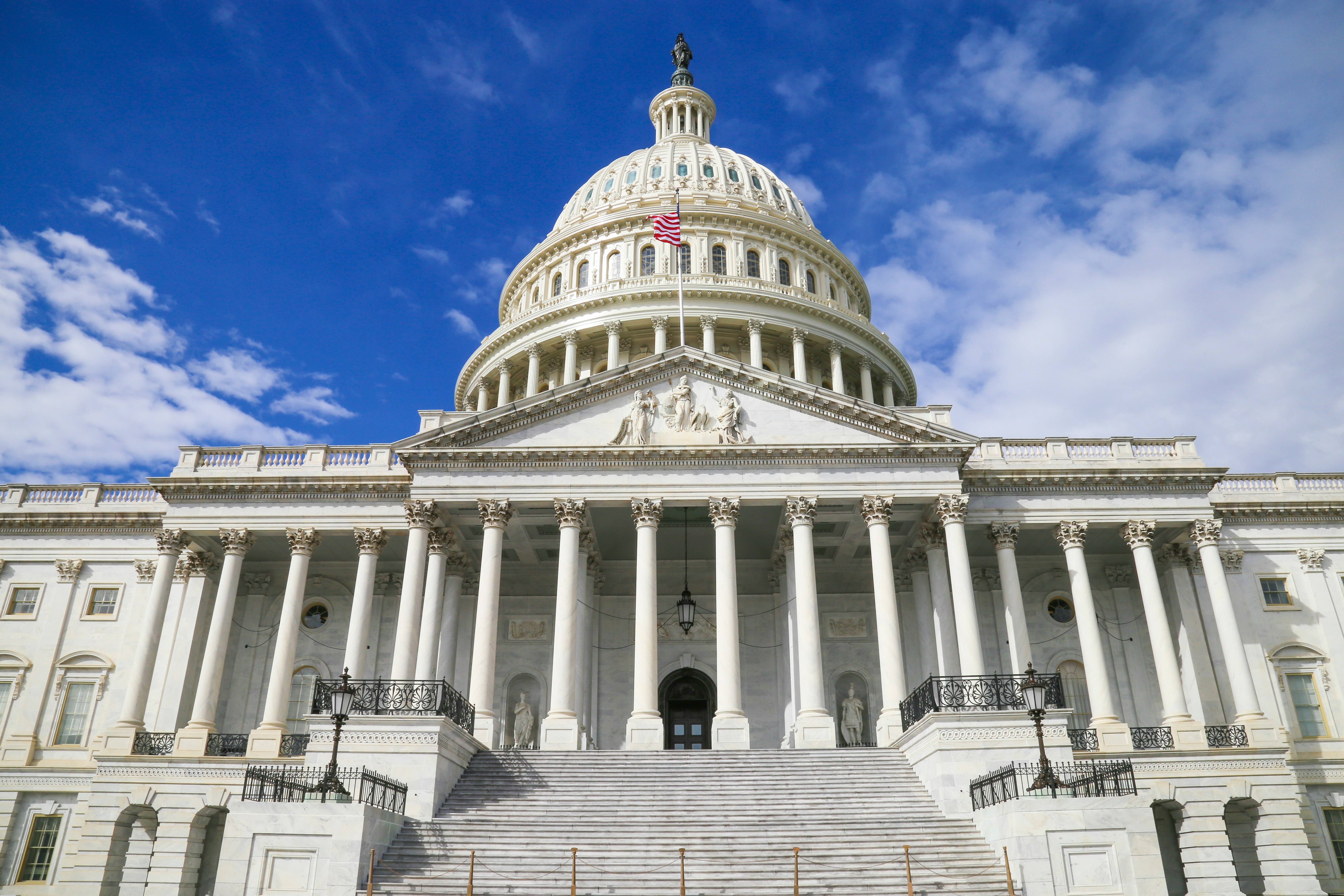A biomedical engineering student fighting to preserve the funding provided for the National Institute of Health for her own research on pancreatic cancer. A first generation US Citizen fighting her way through red tape and paperwork to secure an education at a University into which she’s already been admitted. A group of girls fighting health inequity, funding cutbacks in engineering and research, one-sided debates and lecture halls where we feel like outsiders. These are some of the reasons why the Society of Women Engineers decided to send a group of ten delegates to Washington DC for SWE’s Congressional Outreach Day.

Delegates from the University of Michigan's Society of Women Engineers chapter traveled to Washington, D.C. to advocate for the future of women in science, research and career opportunities, and marginalized communities
On April 2nd, 2025, ten delegates from our university chapter of SWE traveled to Washington, D.C., to participate in SWE’s annual Congressional Outreach Day. This powerful initiative brought together collegiate and professional members of SWE from across the nation to engage directly with lawmakers. Our delegation met with congressional offices representing various states to advocate for legislation and funding priorities aimed at improving diversity, equity, and inclusion within STEM fields. We were not just speaking for ourselves—we were representing the voices of countless women and marginalized individuals who are often left out of the conversation.

The United States of America Capitol Building where SWE members took their demands
Beyond sharing our personal journeys and the specific needs of our communities, we collectively endorsed a targeted list of federal legislative priorities and funding requests. These initiatives were carefully selected for their potential to make tangible, near-term impacts on women and underrepresented groups working or aspiring to work in STEM.
First, our team urged Congressional Offices to co-sponsor the bicameral, bipartisan bill S.662/H.R.1403 introduced by the 118th Congress once it is reintroduced in this congressional cycle. This is the STEM Restart Act, which “provides small and medium-sized businesses with funding for robust, paid, mid-career internships, known as “returnships,” for workers looking to return to work or transition to a new STEM career, with priority for underrepresented populations and rural areas. Studies show that mid-career internships or “returnships” effectively address the difficulties of former STEM employees seeking to return to work in in-demand industries. These programs provide opportunities for mentorship, professional development, and support as participants transition back to work and advance in their careers” (Sen Jacky Rosen).
As Women Engineers, we realize that one of the biggest challenges to STEM equity is retaining women in STEM roles. Women face responsibilities and pressures of family expectation as well as prejudices causing them to leave the STEM workforce. We believe that this legislation is important because we want to bring these individuals back into industry, and know that this can serve a much larger population of underrepresented individuals in STEM.
Additionally we urged the continued funding and preservation of the Department of Education, National Science Foundation, and minority serving institutions across the United States. We believe that this research and service is crucial to expanding pathways for all into STEM fields, and advances our mission to foster universal success in engineering, independent of gender.
Finally, we urged for support for funding requests and bills to invest in Department of Labor apprenticeship programs and Commerce Department implementation of the CHIPS and Science grants that invest in growing the country’s STEM workforce - especially for women and marginalized folks.
Throughout this experience, the trip encouraged further political participation and engagement in critical issues concerning our industry. Students attending this trip expressed an increased interest in public policy later in their careers, and simply felt heard by a government that seems to have turned its back on them. This trip was a success in that students were able to have their voices heard by representatives and share their vital perspectives as women in STEM.
With the help of the UM Library, Society of Women Engineers hopes to continue to grow its policy efforts by educating general members on public policy and current events concerning DEI organizations. With what we’ve learned and gained from this trip, we’ll be able to continue sending collegiate women engineers to DC in future years and build upon relationships with congressional offices to see the policies that are important to us be implemented on Capitol Hill. Furthermore, UM Library has aided in inspiring women to play vital roles in providing opportunities for women in STEM on the national level. We continue to do this work locally with training to educate our members on important bills and legislations that support women in STEM.
UM Library played a vital role in completing important research that allowed us as a team to reach conclusions and build arguments to be presented to the congressional representatives we’ve met with. Catherine Morse, our grant librarian for this project, was crucial in helping us find resources to educate ourselves on the current status of Capitol Hill and complete important research on the representatives we’d be speaking with. We’ll continue to use these resources to watch the bills we want implemented and notify our representatives on important changes and issues.
To learn more about SWE’s Congressional Outreach Efforts on the national level, visit https://swe.org/public-policy/ to see what SWE National is doing to support its members. To learn more or support University of Michigan’s SWE Congressional Outreach, contact swe.sp.advocacy@umich.edu